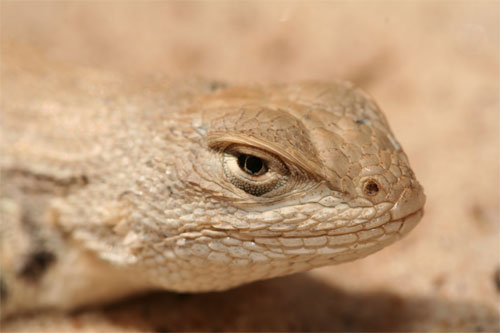The foundation failed to protect the lizard or its habitat from the oil and gas industry.
The Texas Habitat Conservation Foundation, an oil and gas industry funded foundation that, with the blessing of the State of Texas and the federal government, was supposed to protect the dunes sagebrush lizard (Sceloporus arenicolus) and its habitat has failed to do so, so the Texas comptroller has terminated the foundation.
Texas State Comptroller Glenn Hegar killed the foundation’s contract in February, citing the failure of the foundation to perform repairs on several sites that are sensitive habitat for the lizard. The foundation was tasked to repair about 20 acres of land in 2013-2014 and failed to do so, according to the Austin American Statesman.

USFWS
The USFWS says the dunes sagebrush lizard has been reduced by 24 percent and the habitat available to the lizard has been reduced by 40 percent.
“One of biggest problems of the lizard plan is that it hard for any member of the public to know who’s participating in the plan and what conservation measures are being undertaken, in a way that can make them confident of the protection of the species,” said Melinda Taylor, director of the Kay Bailey Hutchison Center for Energy, Law and Business at the University of Texas.
The Texas Habitat Conservation Foundation was created in an effort to prevent the federal government from listing the dunes sagebrush lizard as a threatened or endangered species. The foundation was hailed as a savior for both the lizard and the oil and gas industry that pulls those fossil fuels out of the lizard’s sensitive habitat. But there was a big problem, the board members at the time of its inception, Deb Hastings, Robert Looney and Mari Ruckel, were all lobbyists for the Texas Oil and Gas Association.
When the USFWS declined to place the reptile on the endangered species list, Secretary of the Interior Ken Salazar hailed the effort as proof that government and the private sector can work together for the benefit of the lizard:
“This is a great example of how states and landowners can take early, landscape-level action to protect wildlife habitat before a species is listed under the Endangered Species Act,” said Secretary of the Interior Ken Salazar. “The voluntary conservation efforts of Texas and New Mexico, oil and gas operators, private landowners and other stakeholders show that we don’t have to choose between energy development and the protection of our land and wildlife – we can do both.
Except the oil and gas funded foundation has failed to do what it was specifically created to do, and that was to protect the lizard.
When the foundation was formed, Jay Lininger, then a biologist with the Center for Biological Diversity and now senior scientist at the Center compared the oil industry lobbyists on the foundation boards as akin to the fox guarding the hen house. "If the oil and gas industry is regulating itself, then Americans have no hope of a quality environment,” Lininger said.
What happens next is anyone's guess, bu you can bet that the Center for Biological Diversity is closely monitoring the situation with regard to the lizard.



